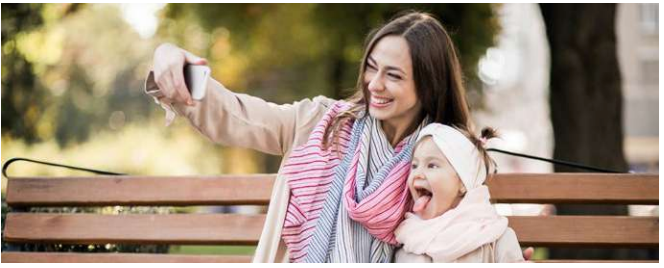The theme of the protection of minors in the world of communication is not new. Suffice it to say that our
Constitution recognizes
protection for minors in art. 31 , which states that the Italian Republic «protects... childhood and youth by promoting the institutions necessary for this purpose»; moreover, this safeguard is already expressed in a broader sense
in the art. 2 , in which
«the inviolable rights of man» are recognized and guaranteed .
Journalists too, and all those who work in the communication sector, are required to respect the principles of the
Treviso Charter , signed on 5 October 1990 to regulate the relationship between two constitutionally guaranteed rights/duties: freedom of information and protection of citizens under the age of 18. With the advent of the web, and above all of social networks, the question has widened:
we can all become the source and object of dissemination of images. And when the images refer to our children, we think we can use them as common sense tells us. But that's not exactly the case. There are no constraints for a parent to publish their children's photos where they believe. And it seems that parents are well aware of this, given that, according to a recent survey,
90% of children under the age of two already have a substantial presence on social media . What they don't seem to know, however, is that these images
can be saved and downloaded by anyone , including pedophiles who can manipulate, misuse and republish them on other sites.


According to research by the Child Rescue Coalition, a non-profit organization that works with law enforcement to track down, arrest and prosecute the bad guys,
parents post an average of 1,500 photos of their child before he's even five years old. A term has even been coined,
'sharenting' (share+parenting) , to describe those parents who feel the need to share almost every step of their child's life on social media,
without, of course, the children being able to provide any of consent or be an active part in this activity. Two problems arise from this: on the one hand, parents unknowingly become one of the first causes of
danger for children on the Internet. In fact, the problems associated with sharing images online are as obvious as they are unclear to families:
pedophilia, stalking, kidnapping, cyberbullying .
The associations invite us to reflect on the fact that certain media behaviors of mums and dads can even make it easier for 'predators' to find images: when you add hashtags such as
#BathTime,#ToiletTraining, #PottyTraining, #NakedKids (these are the most common terms in the world Anglo-Saxon), that specific photo is linked to a searchable term, also and above all by pedophiles.
On the other hand, parents violate their children's privacy : 58% do not ask them for their consent for the circulation of images of them on the web. Some consider them too young to decide (and in some cases it is physiologically true), others that it is only up to the adult to determine how to behave. Yet, sobering judicial cases begin to multiply: in Austria,
an eighteen-year-old girl decided to sue her parents following the publication on Facebook, without her permission, of hundreds of photos that portrayed her as a child in intimate and private moments, claiming enforce his right to privacy and image. These problems seem to become more and more widespread, in Italy and abroad, also due to the increase in the number of separations and divorces. In these cases, if the court sentence has established shared custody of the children, the agreement of both parents is in fact necessary for the online publication of the photos of the minors.
Taken from Born Mom | by Laura Sciolla

 According to research by the Child Rescue Coalition, a non-profit organization that works with law enforcement to track down, arrest and prosecute the bad guys, parents post an average of 1,500 photos of their child before he's even five years old. A term has even been coined, 'sharenting' (share+parenting) , to describe those parents who feel the need to share almost every step of their child's life on social media, without, of course, the children being able to provide any of consent or be an active part in this activity. Two problems arise from this: on the one hand, parents unknowingly become one of the first causes of danger for children on the Internet. In fact, the problems associated with sharing images online are as obvious as they are unclear to families: pedophilia, stalking, kidnapping, cyberbullying .
The associations invite us to reflect on the fact that certain media behaviors of mums and dads can even make it easier for 'predators' to find images: when you add hashtags such as #BathTime,#ToiletTraining, #PottyTraining, #NakedKids (these are the most common terms in the world Anglo-Saxon), that specific photo is linked to a searchable term, also and above all by pedophiles. On the other hand, parents violate their children's privacy : 58% do not ask them for their consent for the circulation of images of them on the web. Some consider them too young to decide (and in some cases it is physiologically true), others that it is only up to the adult to determine how to behave. Yet, sobering judicial cases begin to multiply: in Austria, an eighteen-year-old girl decided to sue her parents following the publication on Facebook, without her permission, of hundreds of photos that portrayed her as a child in intimate and private moments, claiming enforce his right to privacy and image. These problems seem to become more and more widespread, in Italy and abroad, also due to the increase in the number of separations and divorces. In these cases, if the court sentence has established shared custody of the children, the agreement of both parents is in fact necessary for the online publication of the photos of the minors.
Taken from Born Mom | by Laura Sciolla
According to research by the Child Rescue Coalition, a non-profit organization that works with law enforcement to track down, arrest and prosecute the bad guys, parents post an average of 1,500 photos of their child before he's even five years old. A term has even been coined, 'sharenting' (share+parenting) , to describe those parents who feel the need to share almost every step of their child's life on social media, without, of course, the children being able to provide any of consent or be an active part in this activity. Two problems arise from this: on the one hand, parents unknowingly become one of the first causes of danger for children on the Internet. In fact, the problems associated with sharing images online are as obvious as they are unclear to families: pedophilia, stalking, kidnapping, cyberbullying .
The associations invite us to reflect on the fact that certain media behaviors of mums and dads can even make it easier for 'predators' to find images: when you add hashtags such as #BathTime,#ToiletTraining, #PottyTraining, #NakedKids (these are the most common terms in the world Anglo-Saxon), that specific photo is linked to a searchable term, also and above all by pedophiles. On the other hand, parents violate their children's privacy : 58% do not ask them for their consent for the circulation of images of them on the web. Some consider them too young to decide (and in some cases it is physiologically true), others that it is only up to the adult to determine how to behave. Yet, sobering judicial cases begin to multiply: in Austria, an eighteen-year-old girl decided to sue her parents following the publication on Facebook, without her permission, of hundreds of photos that portrayed her as a child in intimate and private moments, claiming enforce his right to privacy and image. These problems seem to become more and more widespread, in Italy and abroad, also due to the increase in the number of separations and divorces. In these cases, if the court sentence has established shared custody of the children, the agreement of both parents is in fact necessary for the online publication of the photos of the minors.
Taken from Born Mom | by Laura Sciolla



